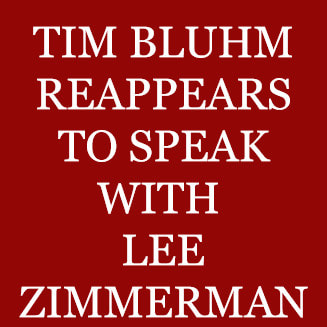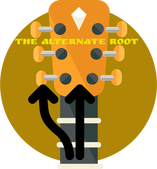|
The Breadcrumbs Widget will appear here on the live site.
4/1/2023 Tim Bluhm from the album When We Disappear
A Chat with Tim Bluhm…
The Mother Hips founder and continuing constant talks about the role the band has played in maintaining Northern California’s lingering legacy By Lee Zimmerman Mother Hips could be considered a legacy ensemble, one whose history dates back thirty years and a baker’s dozen albums, all of which have helped establish an impressive legacy as one of Northern California’s most revered outfits. Theirs is a cult following that’s well worthy of the storied legacy that accompanied the careers many of their Bay Area peers. Nevertheless, the band’s trajectory hasn’t always given the firm footing necessary to bring them to a wider reach. Today, however, the band are solidly in sync courtesy of an exceptional new album, When We Disappear, and a line-up that includes founders Tim Bluhm and Greg Loiacono on guitars and vocals, drummer John Hofer, and bassist Brian Rashap. The principals met in college and the band released its initial effort, Back to the Grotto, in 1993, after which it became clear that they had the instincts and intelligence to make their mark in the realms of indie rock, roots rock and that loose amalgam known as Americana. The major label interest followed, as did a number of landmark recordings. The band took a year-long hiatus in 2000 and regrouped. Varying record label affiliations and an ever-shifting ebb and flow in membership naturally hindered their efforts and forestalled their further progress. Happily, then, their signing with Blue Rose Music put them back on track, and over the past five years, they’ve managed to regain the momentum that stalled earlier on. In that regard, When We Disappear, its incongruous title aside, is finally garnering them the recognition they deserve. Bluhm himself has always been unceasingly prolific, both in his own solo endeavors and by overseeing albums by others. Yet he’s keenly aware of Mother Hips’ place in the San Francisco and Northern California firmament, and refuses to take their role for granted. ‘The primary difference, I think, is just that we haven't ever really quite reached the heights of commercial success that most of those legendary bands have’ he says. ‘But I think in terms of the way we formed and the influences that drove us in our formative years, we're very much like, sort of the epitome of a Northern California rock ’n' roll band, at least in the tradition of a lot of the famous ones. It’s not something we try to exploit very much, but this is where we live and the part of the world where we make music’. Bluhm notes with pride that San Francisco has a mystique all its own. ‘It’s a little bit distinctive from places like Nashville and Los Angeles and New York and London, in that its music scene has always been a little bit more on the fringe. It's not like San Francisco has never been known as like a music town. There's been some famous bands that came from here, but it was more of a, broader cultural movement. It’s not just known for being a music town like Nashville. Rather, it's all about where San Francisco has been. It’s a little broader, endnote just in terms of music. It changed the culture. It really did. It brought in a lot of elements of the youth culture and that sort of thing’. That history has also impacted The Mother Hips trajectory as well, and their standing as far as a band that remains true to that tradition and strives to carry it forward. ‘It informs what we do. For sure’ Bluhm insists. ‘I think it's unavoidable that you're influenced by your surroundings. It certainly rings true for us from the very beginning, when we started our band as teenagers. We were in the town of Chico, which, especially back then, was kind of a geographically isolated town in the Sacramento Valley of Northern California. There's no interstate that runs through there. And there’s a large state college there where we went to school. Back in the late ‘80s, early 90s, there weren’t a whole lot of touring bands that would stop there, but the local music scene had a couple of really talented punk bands that were playing around. Like a lot of college towns, there's mostly some really tight professional cover bands that would make a ton of money. But that wasn’t the kind of music we were playing. We sort of formed in isolation, because we weren't really part of the scene. Especially at first’. ‘I think that’s what made us unique in a way,” Bluhm continues. “We weren't really trying to be like anybody else around us. We didn't have mentors; we didn't have a lot of older guys to look up to and take advice from. We were just doing it on our own. So we do a lot of listening to a lot of old records, some of it being records that were popular in the ‘60s, ‘70s and ‘80s. 80s. And some of it was a little more obscure. My older brother Eric was a collector of rare records and music that most people never heard of, like the West Coast Pop Art Experimental Band, which was really cool band from Los Angeles in the mid ‘60s that were kind of doing similar stuff to what Buffalo Springfield might have been playing, but it was just a little more psychedelic. It wasn't really approachable, so we were kind of listening to some stuff like that, and that was that was informing us as well’. On the other hand, Bluhm says the band always resisted the notion of being a cover band. ‘We were very adamantly against covers’ he maintains. ‘We hated it. We hated covers. We don't really anymore now, because we sort of play whatever we feel like playing. We don't really care, because we play whatever is good. We still play primarily 99% original music, but yes, part of our mission was to take the live concert business away from cover bands. That was our challenge. We'd go to these parties and watch these cover bands, and they were good bands, too. So we'd watch them play all these covers, like, Steve Miller, and ‘70s and ‘80s college rock, and we would see how popular they were, and how much people loved it. And we just thought, it was such a shame that there wasn’t someone getting the same reaction with their own music. So that was kind of part of our mission back then. We decided we’re gonna get more popular than these cover bands, but we're gonna do it by playing our own music’. Still, he acknowledges that it can work for some artists. ‘It's proven to be a successful formula’ Bluhm acknowledges. ‘Look at the Grateful Dead. It’s proven to be successful, and there's nothing wrong with it. Everyone has their own path., but it’s just not our path’. The seemingly steady shift in The Mother Hips’ roster has impacted that path, and here again, Bluhm is quick to admit that it’s taken more than a few periods of adjustment for the band to be able to steady its course. ‘It usually takes about a year for any given person to get up to speed on all the catalog, and just the style and attitude that we want to play in’ he notes. ‘So, it's a big job for anyone coming into the band. It’s basically happened four times over the course of our 30 - 32 years as a group. Those personnel changes mark the different eras of the band as much as the LP releases do. Each person brings something different and we need to indoctrinate them in. It also depends on who they are. Sometimes the replacement bass player has been very familiar with us, but other bass players that we've had, are not at all familiar with us. So, it depends on who they are, and what their knowledge of our history as a band is already. But what ends up invariably happening invariably — and I think it's a good thing — is that we make them play our songs in the way that we want them to play them, but we also recognize and identify their own strengths as musicians and as personalities. And we try to honor that and make that part of our music too. Because that's what being a band is. It’s that chemistry’. Nevertheless, Bluhm claims that the transition is not only necessary, but ultimately productive as well. ‘It's a hard job’, he says. ‘It's not an easy task. Luckily, as individuals and as a band, the rest of us are pretty relaxed. We're not super neurotic about the way that each note is getting played and things like that. I mean, that's the way I feel. I'm not sure what someone else might say, but I think we're pretty mellow, guys’. At this point, it’s apparent they’re very compatible as well. ‘The personal relationships with everyone in the band are really healthy, and we're just feeling a lot of camaraderie and spirit’ Bluhm reflects. ‘We have a lot of fun’. At any rate, it appears that The Mother Hips is in fact on a roll. ‘We have to thank our label, Blue Rose Music. They have been so proactive and so supportive with us, concerning us making records, and they're always willing to say, let’s make another record. They're super, super supportive and it's been very, very nice thing to have’. (by Lee Zimmerman) The Blog Tags widget will appear here on the published site.
Tags:
0 Comments
The Recommended Posts widget will appear here on the published site.
Leave a Reply. |
- Home
- Top Ten
- It's All Music Radio
- Latest Videos
- All Reviews
- Breaking Thru
- Who's Playing Near Me?
- Seen & Heard
- About
- Contact
The Category Navigation Widget will appear here on the live site.
|
To submit music, please mail a copy of your CD to the following address:
Danny McCloskey The Alternate Root 1717 East Vista Chino Ste A7 PMB 302 Palm Springs, CA 92262 |
Contact Us |
©2021 The Alternate Root All Rights Reserved
website by Jim Cortez [email protected]
website by Jim Cortez [email protected]


